#Thomas Conway
Explore tagged Tumblr posts
Text
La Fayette's Opinion on Court Martials
Tl;dr: La Fayette was much opposed to court martials.
This was intended as a post about La Fayette’s opinions on the death penalty and the reform of penal law – however, I think it is worthwhile to have a look at his opinion on court martials and the different systems used by different nations (France, England, America and to some extend Poland)
Now, La Fayette expressed his opinion for the first time in a written document that we knew of in a letter to George Washington on January 13, 1778. Although that is his first time expressing such notions to Washington, by the points that he raises it is evident that he has held these believes for some time. The trigger for La Fayette writing this letter was the court martial of two of his subordinate officers:
At the same [General] Court held 6th instant Captain Flagg charged with “neglect of duty 1st in suffering the Marquis de la Fayette, when Major Genl of the day to come in the night to the center of his Picquet, without being stopped or challenged; 2nd for permitting his sentries to have fires in his sight” was tried and acquitted by the unanimous opinion of the court. The Commander in Chief approves the sentence.
At the same Court held 7th instant Captn Laird, charged with “Neglect of duty, in suffering the Major General of the day to surprize him at his picquet in the night”—was tried & found guilty and sentenced to be dismissed from the service. The Commander in Chief approves the sentence.
“General Orders, 13 January 1778,” Founders Online, National Archives, https://founders.archives.gov/documents/Washington/03-13-02-0180. [Original source: The Papers of George Washington, Revolutionary War Series, vol. 13, 26 December 1777 – 28 February 1778, ed. Edward G. Lengel. Charlottesville: University of Virginia Press, 2003, pp. 214–216.] (10/24/2023)
And here a screenshot from the notes beneath this letter to give some biographical information on the two men in question.

La Fayette wrote his letter the same day and described the situation as follows:
There were two gentlemen, same rank, same duty to perform, and same neglect of it who have been arrested the same day by me—as I went in the night around the piquets I found them in fault, and I gave an account of it the next day to your excellency—you answered that I was much in wrong not to have had them relieved and arrested immediately—I objected that it was then very late for such a changement, and that I did not know which was the rule in this army, but that the gentlemen should be arrested in that very moment—the last answer of your excellency has been, “they are to have a court martial, and you must give notice of it to the adjudant general”—therefore major nevill made two letters in order to arrest them, one for having been surprised in his post and the other, for the same cause and allowing his centrys to have fires which he could see in standing before the picquet. I give you my word of honor that there was not any exageration.
“To George Washington from Major General Lafayette, 13 January 1778,” Founders Online, National Archives, https://founders.archives.gov/documents/Washington/03-13-02-0186. [Original source: The Papers of George Washington, Revolutionary War Series, vol. 13, 26 December 1777 – 28 February 1778, ed. Edward G. Lengel. Charlottesville: University of Virginia Press, 2003, pp. 222–225.] (10/24/2023)
Beside his recalling of the situation, it can also be noticed that La Fayette was unfamiliar with the system of court-martials in America and used to different proceedings from his time in the French army.
Before we address La Fayette’s grievances with the court martial system in the Continental Army in general and with these cases in particular, here is his account of the proceedings in France:
(…) in france an officer is arrested by his superior, who gives notice of it to the commanding officer, and then he is punished enough in being deprived of going out of his room in time of peace, of doing his duty in time of war—no body knows of it but his comrades—when the fault is greater he is confined in a common room for prisonner officers and this is much more shamefull—notice of it is immediately given to the general officer who commands there—that goes too to the Kings minister who is to be reimplaced here by the commander in chief—in time of war it goes to the general in chief.
Soldiers are punished the same or next day by order of proper officers, and the right of punishing is proportionate to theyr ranks. but when Both officers and soldiers have done something which deserves A more severe punishement, when theyr honor, or theyr life, or theyr liberty for more than a very short time is concerned, then a court martial meets, and the sentence is known—how will you let an unhappy soldier be confined several weeks, with men who are to be hanged, with spies, with the most horrid sort of people, and in the same time be lost for the duty, when they deserve only some lashes—then almost no proportion in the punishements.
Now, his first problem were the punishments – or better; lack thereof. You recall that Captain Ebenezer Flagg was acquitted:
now I See in the orders the less guilty punished in a manner, much too severe indeed, and dismised from the service (it is among all the delicate minds deprived of his honor) when he was only to be severely reprimanded, and kept for some time under arrest—but it can be attributed to a very severe discipline.
This acquittal was not only bothersome for La Fayette because Captain David Laird, who committed a less serious crime in La Fayette’s eyes, was so harshly punished. Part of the problem laid also in his perception of a gentleman’s word of honour:
what must I think of the same court when they unanimously acquit (it is to say that my accusation is not trüe) the officer who joins to the same fault, entirely the same, this of allowing his centrys to have fire in his own sight—for in every service being surprised or being found in the middle of his picquet without any challenging or stopping centry, as major nevil riding before me found him, is entirely the same thing—and mjor nevil riding before me when I was busy to make a centry pull off his fire, can swear that such was the case with that officer—he can do more than swearing, for he can give his word of honor—and I think that idea honor is the same in every country but the prejugées are not the same thing—for giving publickly the best of such a dispute (for here it becomes a trial for both parties) to an officer of the last military stage against one of the first, schould be looked on as an affront to the rank, and acquitting a man whom one other man accuses, looked upon as an affront to the person—it is the same in poland for count de pulaski was much affronted of the decision of a court martial entirely acquitting Colonel molens—however as I know the english costoms I am nothing else but surprised to see such a partiality in a court martial.
We read that La Fayette was not alone in his perception here and that other foreign officers, in this case Kazimierz Pułaski, were of the same opinion. His comment on the “english costoms” will be of some important later on.
But beside the critic he mentioned specifically in context of this affair, there were still more general points of criticism that La Fayette had – there were three points in total:
how is it possible to carry a gentleman before a parcel of dreadful judges at the same place where an officer of the same rank has been just now cashiered, for a trifling neglect of his duty, for, I suppose, speaking to his next neighbour in a maneuvre, for going into a house to speack to a pretty girl, when the army is on his march and thousand other things—how is it possible to bring to the certainty of being cashiered, or dishonored, a young lad, who has made a considerable fault because he had a light head, a too great vivacity, when that young man would be perhaps in some years the best officer of the army, if he had been friendly reprimanded and arrested for some time, without any dishonor. the law is alwaïs severe, and bring with it an eternal Shamefull mark—when the judges are partial as in this occasion, it is much worse, because they have the same inconveniences as law itself. in court martials men are judged by theyr inferiors—how (mutilated) to discipline I do’nt want to say—the publication exposes men to (mutilated) despised by the least soldier—when men have been before a court martial they schould be or acquitted or dismissed—what do you think can be produced by the half conndemnation of a general officer—what necessity for all the soldiers, all the officers, to know that general maxwell has been prevented from doing [h]is duty by his being drunk. Where is the man who will not laugh at him if he is told by him you are a drunkard and is it right to ridicule a man repectable by his rank, because he drank two or three gills of rum. there are my reasons against court martials, when there is not some considerable fault to punish—according to my affair I am sorry in seeing the less guilty being the only one punished however, I shall send to court martials but for such a crimes, that there will be for the judges no way of indulgence and partiality. With the most tender respect I am Your excellency’s the most obedient servant
While La Fayette sounded almost a bit rebellious in his last sentence, it was not that he was entirely against court martials, he simply wanted them reserved for more serious offenses.
your excellency will certainly approuve my not arresting any officer for being brought before a court martial, for any neglect of duty, but when they will be robbers, or cowards, or when they will assassinate, in all when the[y] will deserve being cashiered or put to death.
The American system of court martials was molded after the English system and La Fayette was not quite happy with that either. Again, in the same letter to Washington from January 13, 1778 he wrote:
give me leave, to tell your excellency how I am adverse to court martials—I know it is the english costom, and I believe it is a very bad one—it comes from theyr love of lawers, speakers, and of that black apparate of sentences, and judgements—but such is not the american temper, and I think this new army must pick up the good institutions, and leave the bad ones where ever they may be (…)
Since I picked the letter so much apart, I will put a full and continuous version beneath the cut. :-)
Washington was not the only person, nor this the only incident where La Fayette expressed his displeasure about court martials. He wrote in a letter to Henry Laurens in his official position as President of Congress on March 20, 1778:
There as been a court martial for desertion which I din’t approuve of, but as among other men I have found sentenc’d of death, I beg from Congress to be empowered to relieve the man.
Idzerda Stanley J. et al., editors, Lafayette in the Age of the American Revolution: Selected Letters and Papers, 1776–1790, Volume 1, December 7, 1776–March 30, 1778, Cornell University Press, 1977, p. 365.
Despite being against court martials, La Fayette was naturally involved in a number of trials one way or another. He for example took part in two famous court martial cases, the cases of Charles Lee and Major John André. In Lee’s proceedings, La Fayette was a witness and wrote to Henry Laurens on July 6, 1778:
You have heard good deal, I dare say, of the court against Gal. Lee. I am very unwillingly an evidence in it but am happy enough as to have nothing material to say. This Gal. Lee is very much prejudic’d in favor of his english nation. If he is condemn’d, certainly he must be guilty of some thing very ugly.
Idzerda Stanley J. et al., editors, Lafayette in the Age of the American Revolution: Selected Letters and Papers, 1776–1790, Volume 3, April 27, 1780–March 29, 1781, Cornell University Press, 1980, p. 99.
Even in this short abstract La Fayette clearly states his opinion of General Charles Lee. It was not a very high opinion. He thought that Lee had acted badly during the battle, that he was prejudice, and that Washington was in the right when giving him a dressing down. Still, La Fayette was not in favour of the court martial and much resented being a part of it. We can see that his aversion for court martials, was not based on personal sympathies. He rejected these proceedings no matter the circumstances or the person accused.
Another great, but more complex, matter was the court martial of John André. La Fayette sat from September 29 to September 30, 1780 on the court martial of John André and was therefore among the men who found him guilty. He wrote to the Vicomte de Noailles (the husband of his sister-in-law) about his role in the proceeding on October 3, 1780.
But what has truly afflicted me is the necessity of hanging the adjutant general of the British army, a charming man who conducted himself throughout, and died, like a hero. This severity was necessary; the enemy acted very stupidly on this occasion, and since they lost that unfortunate man, the soul of their army, they have not written one letter that had common sense. Andre was executed yesterday. General Clinton’s anger does not frighten us, but this man's death, although inevitable in my opinion, left me with a feeling of sadness and respect for his character. I truly suffered in condemning him; but he was an officer under disguised clothing and name, passing within our posts with papers full of intelligence for the enemy, and he himself did not hesitate to recognize himself as a spy.
Idzerda Stanley J. et al., editors, Lafayette in the Age of the American Revolution: Selected Letters and Papers, 1776–1790, Volume 3, April 27, 1780–March 29, 1781, Cornell University Press, 1980, p. 182.
La Fayette’s aversion to court martials meets here his personal sympathy and respect for John André and his opinions (although they were still very much developing at this point in time) about the death penalty.
Out of the recorded 3315 court martials recorded in the continental army during the War of American Independence, La Fayette was involved in a number of them. We dissected the cases of Flagg, Laird, Lee and André. A forage master under his command was tried on February 19, 1778:
At a General Court-Martial whereof Col. Cortlandt was President (Feby 19th 1778) Mr Edward Bennett Forage-Master in the Marquis La Fayette’s division tried for repeated neglect of duty in suffering the horses of the division to remain three days without Forage when there was Forage in the General Forage yard, and all the divisions in the Army drew, for neglecting to draw hay when to be got and for trusting to others what he should himself perform by which many horses in the division have perished and the whole of the teams rendered unfit for duty. (…) The Court are therefore unanimously of opinion that Mr Bennett has been neglectful of his duty in not getting forage for the horses of the division to which he belongs when it could have been procured whereby many of them have perished for the want of it, being a breach of Article 5th Section 18th of the Articles of War and they do sentence him to be dismissed from his employment in the forage department.
“General Orders, 24 February 1778,” Founders Online, National Archives, https://founders.archives.gov/documents/Washington/03-13-02-0555. [Original source: The Papers of George Washington, Revolutionary War Series, vol. 13, 26 December 1777 – 28 February 1778, ed. Edward G. Lengel. Charlottesville: University of Virginia Press, 2003, pp. 652–653.] (10/24/2023)
He also ordered the court martial of Lieutenant William Mills on September 15, 1780:
At a division General court martial the 15th instant by order of Major General Marquis de la Fayette, Colonel Swift President Lieutenant William Mills of Colonel Gematt’s regiment of Light Infantry was tried for “Disobedience of Orders” and unanimously acquitted.
“General Orders, 18 September 1780,” Founders Online, National Archives, https://founders.archives.gov/documents/Washington/03-28-02-0160. [Original source: The Papers of George Washington, Revolutionary War Series, vol. 28, 28 August–27 October 1780, ed. William M. Ferraro and Jeffrey L. Zvengrowski. Charlottesville: University of Virginia Press, 2020, pp. 222–223.] (10/24/2023)
He further ordered a court martial for Captain Wilkin on September 12, 1781:
At a General Court Martial assembled at Williamsburgh September 12th 1781 by order of Major General the Marquis de la Fayette Colonel Vose President—Captain Wilkin of Colonel Stewarts Battalion of the Pennsylvania line, charged by Col Stewart with riotous behavior in his tent at an unseasonable hour of the Night; with disobedience of orders in not desisting when ordered so to do by the field Officer of the day through the Adjutt Captain Vanhorn and for using language and conduct subversive of good order and Discipline, was tried and acquited.
The Commander in Chief approves the Opinion of the Court. Captain Wilkin is released from his Arrest.
“General Orders, 25 September 1781,” Founders Online, National Archives, https://founders.archives.gov/documents/Washington/99-01-02-07015. [This is an Early Access document from The Papers of George Washington. It is not an authoritative final version.] (10/24/2023)
La Fayette also was asked by General Wayne to approve a verdict by a court martial ordered by Wayne himself. The soldier in question, James Grant, was from Virginia and La Fayette was popular with the Virginias and Wayne not. Wayne wrote on August 10, 1781, the day after Grant’s trial:
Inclosed is the proceedings of a Genl. Court Martial. Was it held on a soldier belonging to the Pennsa. Line I should not have the least difficulty or a moments hesitation in Confirming it because if this Culprit should pass with Impunity-it may open a door to worse [occurrences?]. But as it is a private of the Virginia Line I beg leave to commit it to your Decission.
Idzerda Stanley J. et al., editors, Lafayette in the Age of the American Revolution: Selected Letters and Papers, 1776–1790, Volume 4, April 1, 1781–December 23, 1781, Cornell University Press, 1981, pp. 309-311.
Grant was found guilty of shooting Captain Abraham Kirkpatrick whom he allegedly found in bed with his wife.
This list is by no means intended to be conclusive, there were probably many more cases La Fayette was involved in, these were just the ones I could present after a relatively quick search. This is more meant to give you a felling for La Fayette’s behavior in such situations.
Marquis de La Fayette to George Washington, January 13, 1778:
dear general I Schall make use in this particular instance of the liberty you gave me of telling freely every idea of mine which could strike me as not being useless to a better order of things. There were two gentlemen, same rank, same duty to perform, and same neglect of it who have been arrested the same day by me—as I went in the night around the piquets I found them in fault, and I gave an account of it the next day to your excellency—you answered that I was much in wrong not to have had them relieved and arrested immediately—I objected that it was then very late for such a changement, and that I did not know which was the rule in this army, but that the gentlemen should be arrested in that very moment—the last answer of your excellency has been, “they are to have a court martial, and you must give notice of it to the adjudant general”—therefore major nevill made two letters in order to arrest them, one for having been surprised in his post and the other, for the same cause and allowing his centrys to have fires which he could see in standing before the picquet. I give you my word of honor that there was not any exageration.
now I See in the orders the less guilty punished in a manner, much too severe indeed, and dismised from the service (it is among all the delicate minds deprived of his honor) when he was only to be severely reprimanded, and kept for some time under arrest—but it can be attributed to a very severe discipline.
what must I think of the same court when they unanimously acquit (it is to say that my accusation is not trüe) the officer who joins to the same fault, entirely the same, this of allowing his centrys to have fire in his own sight—for in every service being surprised or being found in the middle of his picquet without any challenging or stopping centry, as major nevil riding before me found him, is entirely the same thing—and mjor nevil riding before me when I was busy to make a centry pull off his fire, can swear that such was the case with that officer—he can do more than swearing, for he can give his word of honor—and I think that idea honor is the same in every country but the prejugées are not the same thing—for giving publickly the best of such a dispute (for here it becomes a trial for both parties) to an officer of the last military stage against one of the first, schould be looked on as an affront to the rank, and acquitting a man whom one other man accuses, looked upon as an affront to the person—it is the same in poland for count de pulaski was much affronted of the decision of a court martial entirely acquitting Colonel molens—however as I know the english costoms I am nothing else but surprised to see such a partiality in a court martial.
your excellency will certainly approuve my not arresting any officer for being brought before a court martial, for any neglect of duty, but when they will be robbers, or cowards, or when they will assassinate, in all when the[y] will deserve being cashiered or put to death.
give me leave, to tell your excellency how I am adverse to court martials—I know it is the english costom, and I believe it is a very bad one—it comes from theyr love of lawers, speakers, and of that black apparate of sentences, and judgements—but such is not the american temper, and I think this new army must pick up the good institutions, and leave the bad ones where ever they may be—in france an officer is arrested by his superior, who gives notice of it to the commanding officer, and then he is punished enough in being deprived of going out of his room in time of peace, of doing his duty in time of war—no body knows of it but his comrades—when the fault is greater he is confined in a common room for prisonner officers and this is much more shamefull—notice of it is immediately given to the general officer who commands there—that goes too to the Kings minister who is to be reimplaced here by the commander in chief—in time of war it goes to the general in chief.
Soldiers are punished the same or next day by order of proper officers, and the right of punishing is proportionate to theyr ranks.
but when Both officers and soldiers have done something which deserves A more severe punishement, when theyr honor, or theyr life, or theyr liberty for more than a very short time is concerned, then a court martial meets, and the sentence is known—how will you let an unhappy soldier be confined several weeks, with men who are to be hanged, with spies, with the most horrid sort of people, and in the same time be lost for the duty, when they deserve only some lashes—then almost no proportion in the punishements.
how is it possible to carry a gentleman before a parcel of dreadful judges at the same place where an officer of the same rank has been just now cashiered, for a trifling neglect of his duty, for, I suppose, speaking to his next neighbour in a maneuvre, for going into a house to speack to a pretty girl, when the army is on his march and thousand other things—how is it possible to bring to the certainty of being cashiered, or dishonored, a young lad, who has made a considerable fault because he had a light head, a too great vivacity, when that young man would be perhaps in some years the best officer of the army, if he had been friendly reprimanded and arrested for some time, without any dishonor.
the law is alwaïs severe, and bring with it an eternal Shamefull mark—when the judges are partial as in this occasion, it is much worse, because they have the same inconveniences as law itself.
in court martials men are judged by theyr inferiors—how ⟨mutilated⟩ to discipline I do’nt want to say—the publication exposes men to ⟨mutilated⟩ despised by the least soldier—when men have been before a court martial they schould be or acquitted or dismissed—what do you think can be produced by the half conndemnation of a general officer—what necessity for all the soldiers, all the officers, to know that general maxwell has been prevented from doing [h]is duty by his being drunk. Where is the man who will not laugh at him if he is told by him you are a drunkard and is it right to ridicule a man repectable by his rank, because he drank two or three gills of rum. there are my reasons against court martials, when there is not some considerable fault to punish—according to my affair I am sorry in seeing the less guilty being the only one punished however, I shall send to court martials but for such a crimes, that there will be for the judges no way of indulgence and partiality. With the most tender respect I am Your excellency’s the most obedient servant
The mquis de lafayette
“To George Washington from Major General Lafayette, 13 January 1778,” Founders Online, National Archives, https://founders.archives.gov/documents/Washington/03-13-02-0186. [Original source: The Papers of George Washington, Revolutionary War Series, vol. 13, 26 December 1777 – 28 February 1778, ed. Edward G. Lengel. Charlottesville: University of Virginia Press, 2003, pp. 222–225.] (10/24/2023)
#marquis de lafayette#la fayette#french history#american history#american revolution#history#letter#founders online#george washington#henry laurens#anthiny wayne#1778#1780#1781#charles lee#thomas conway#john andré
38 notes
·
View notes
Text
Btw I love Thomas Conway. By the way I gatekeep him. By the way he's mine. Just kidding, he's everyone's. By the way don't worry I'll share. By the way I might not gatekeep him but he's still my lovely Connie boi even though we all get to share him. By the way I love Thomas Conway.
5 notes
·
View notes
Text
BHOC: THE SUPERHERO WOMEN
Back at Christmas 1978, I was working my way through the fourth and latest release in the ORIGINS OF MARVEL COMICS line of Trade Paperbacks from Simon & Schuster: THE SUPERHERO WOMEN. This book was a bit more of a mixed bag than the earlier ones and relied more on material that was more contemporary–the first issue of MS. MARVEL, which is reprinted here, was less than a year old. But that was a…
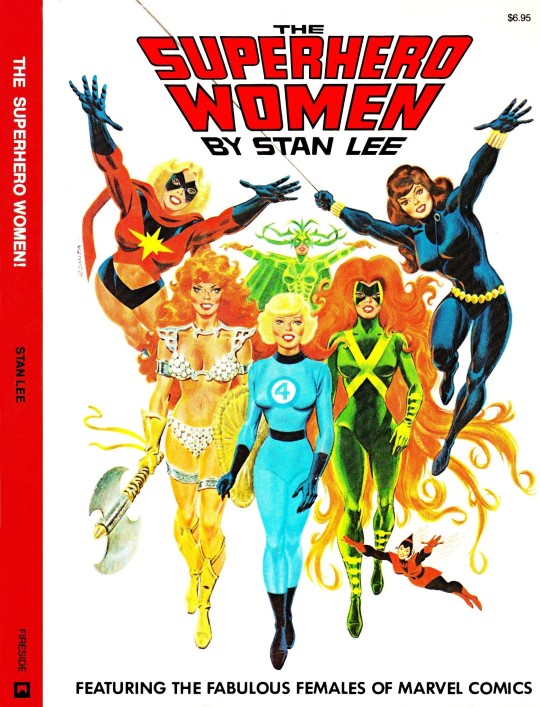
View On WordPress
#Ant-Man#Black Widow#Bruce Jones#Carole Seuling#Chris Claremont#Don Heck#Ernie Hart#Fantastic Four#Femizons#Frank Thorne#George Roussos#Gerry Conway#Hela#Jack Kirby#Joe Sinnott#John Buscema#John Romita#Linda Fite#Marie Severin#Marvel#Medusa#Miss Fury#Ms Marvel#Red Sonja#Ross Andru#Roy Thomas#Sif#Spider-Man#Stan Lee#Superhero Women
56 notes
·
View notes
Text


14 notes
·
View notes
Text





"Whoever knows fear burns at the touch of ... the Man-Thing!"
On this day in 1971, the Man-Thing debuted in Marvel's black-and-white magazine Savage Tales #1. Dr. Theodore "Ted" Sallis was transformed into the large, slow-moving and silent monster in a story by Roy Thomas, Gerry Conway and Gray Morrow.
#man-thing#comic books#comics#comics to remember#marvel#gray morrow#gerry conway#roy thomas#savage tales
18 notes
·
View notes
Text






Swordquest by George Pérez
28 notes
·
View notes
Text
The Graphic Novel Conan the Barbarian: The Horn of Azoth was published with cover date of April 1990. The story was based on the original script Gerry Conway and Roy Thomas had developed for what eventually became the film Conan the Destroyer. The GN introduced to Marvel Natari, Shumballa, Amboola, Dahomi, Rammon son of Rammon, Azoth, Luda, Leeches, Strabo, Karanthes, Rammon, Kezanki, Gambinus, and Moria. ("The Horn of Azoth" Marvel Graphic Novel/Comic Event)

#nerds yearbook#real life event#first appearance#comic book#graphic novel#marvel#marvel comics#april#1990#conan#conan the barbarian#gerry conway#roy thomas#mike docherty#the horn of azoth#natari#temple of ibis#shumballa#amboola#dahomi#rammon#azoth#dreaming one#dreaming god#luda#shadizar#leeches#strabo#karanthes#kezanki
5 notes
·
View notes
Text
ALL BLACK SIX BROADWAY CAST TONIGHT!!!!
#six the musical#musicals#broadway#six broadway#hailee kaleem wright#leandra ellis gaston#kristina leopold#nasia thomas#holli conway fields#taylor iman jones#shut up dani#note: this is just the queens not the ladies in waiting too
88 notes
·
View notes
Text
I think I heard the 200th issue here is around 70 pages long. I don't know how I feel about reading all that. Very mixed feelings. But hey. We at least have Martian Manhunter, Red Tornado and Phantom Stranger all in one comic (although I don't think they interact much, if at all). And if the art stays this good, maybe 70 pages will feel short? We can only hope. (Justice League of America #200):

#justice league#the justice league#justice league of america#jla#gerry conway#george perez#roy thomas#dc#dc comics#reading comics#comic books#comics#dc universe#dcu#martian manhunter#red tornado#phantom stranger
9 notes
·
View notes
Text

#Conan the Destroyer#Richard Fleischer#Robert E. Howard#Roy Thomas#Gerry Conway#Stanley Mann#Arnold Schwarzenegger#Grace Jones#80s
16 notes
·
View notes
Text
You will find a Mention Made of gnl Conway which I am Going to Explain—I don’t Say that I Have Merit—But I Say I Have in Consequences—viz.—Ennemies—My Popularity is Great throughout the Kingdom, and in this City—But Amongst the Great folks I Have a large party Against me, Because they are jealous of my Reputation—in a word, the pitt to one Man is for me—and in the Boxes there is a division—a Plot Was led to draw me into a snare, and Madame Conway was made a tool of to Give me and yourself the Air of an implacable Revenge Against that Man Who is Considered Here as Having Been Abandonned and Ruined By me in America
The Marquis de La Fayette to George Washington, March 9, 1784
“To George Washington from Lafayette, 9 March 1784,” Founders Online, National Archives, https://founders.archives.gov/documents/Washington/04-01-02-0143. [Original source: The Papers of George Washington, Confederation Series, vol. 1, 1 January 1784 – 17 July 1784, ed. W. W. Abbot. Charlottesville: University Press of Virginia, 1992, pp. 184–189.] (03/26/2024)
#marquis de lafayette#la fayette#french history#american history#history#letter#1784#george washington#founders online#thomas conway
7 notes
·
View notes
Text

🇬🇧 The Conwy Railway Bridge, in Welsh known as Pont Rheilffordd Conwy, and Conwy's town walls in Wales - a colour lithograph by Thomas Picken from 1849. Digitally enhanced.
The bridge was designed by Robert Stephenson and opened in 1849. It's still in use and protected as Welsh heritage.
#Thomas Ashburton Picken#Conwy#Conway#Wales#Cymru#bridge#railways#Fascinating Europe#Europa#Europe#Architectural Revival#heritage#art#artwork#vintage#old views#lithograph#lithography#UK#Britain#architecture
8 notes
·
View notes
Text

Yeah but he has that magic (R) next to his name, so he is above the law.
#eric adams#indicted#clarence thomas#same difference#undisclosed travel benefits#luxury trips#illegal donations#george conway
8 notes
·
View notes
Text

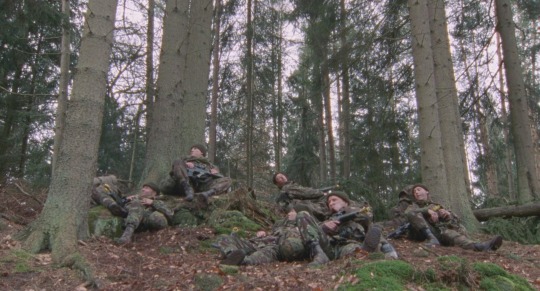

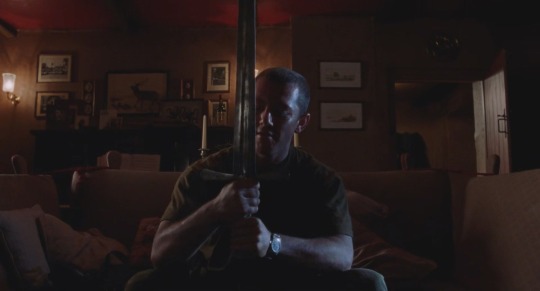




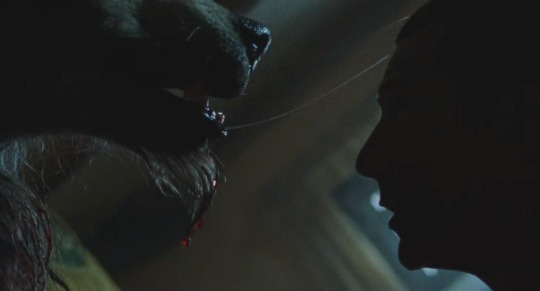
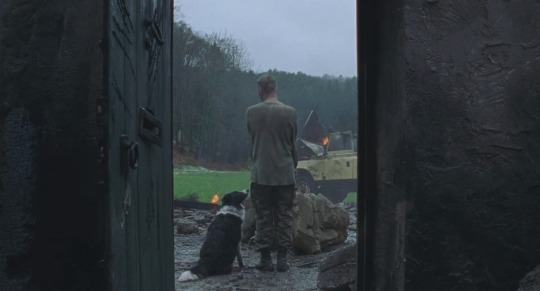
Dog Soldiers (2002)
Director - Neil Marshal, Cinematography - Sam McCurdy
"We are now up against live, hostile targets. So, if Little Red Riding Hood should show up with a bazooka and a bad attitude, I expect you to chin the bitch."
#scenesandscreens#dog soldiers#neil marshall#sam mccurdy#sean pertwee#kevin mckidd#emma cleasby#liam cunningham#darren morfitt#chris robson#leslie simpson#thomas lockyer#craig conway#tina landini
86 notes
·
View notes
Text

Secret Origins #17 - August 1987, cover by Kevin Nowlan.
#comic books#dc comics#secret origins#kevin nowlan#carmine infantino#adam strange#dr occult#gerry conway#roy thomas
8 notes
·
View notes
Text

Whatever Happened to Jane's Baby
6 notes
·
View notes